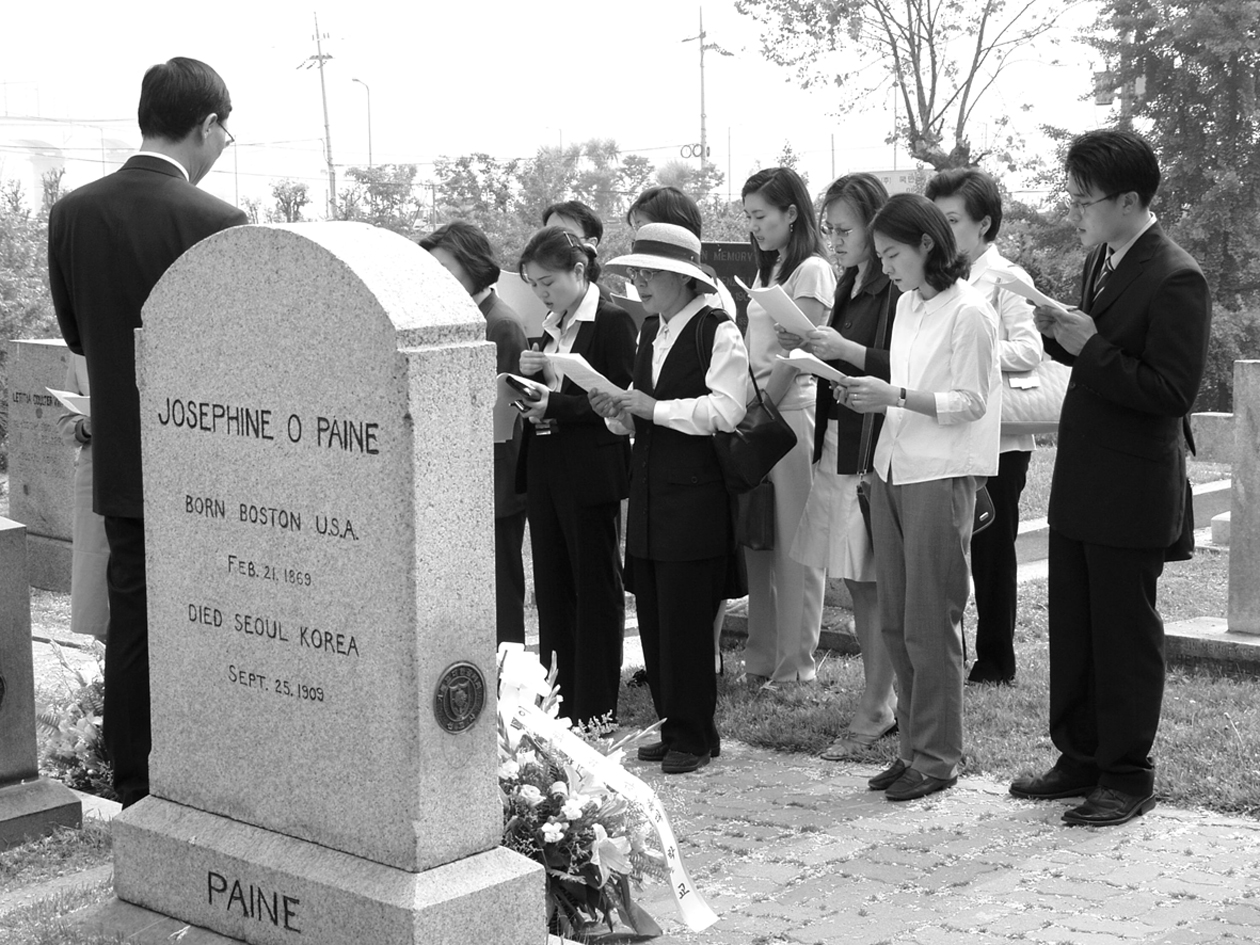
A ceremony was held in front of the tombstones of Paine, Hillman and Scranton. Professor Jeong Yong-seok (Christian Studies) delivered a message comparing these founding figures to a mustard seed growing into a tree for birds to rest on. He said, "Those who came to Korea and gave Korean women opportunities to study are like mustard seeds. Their individual work became a beacon light to Korean women and now the small school has grown into a big university with over 120,000 alumnae."
During his speech Jeong also explained the personal histories of the missionaries. Scranton, Paine, and Appenzeller were the first, third and sixth presidents of Ewha, and all passed away in Korea. Hall established Dongdaemun Hospital for Women, which later became Ewha Womans University Dongdaemun Hospital, and Hillman contributed building classrooms and experiment rooms for the Department of Home Science. In addition to these five women, numerous other foreign missionaries also contributed to Ewha"s development, Jeong added, and he also asked participants to think about and honor their contribution.
This annual visit to appreciate Ewha"s founders has taken place from 1997. Though participation is voluntary, many find it meaningful. According to Yang Han-hee of the Office of General Administration, the event started with a proposal from formal president Chang Sang. "When she took a walk around Ewha Campus, she discovered only a few monuments for a limited number of people. She felt sorry for the missionaries who had devoted all their lives to establishing a women? school by making sacrifices in their lives."
Few students, however, attended the ceremony at the park. Yang says, "We welcome students accompanying the visit, but we can"t force them to. These days, students prefer to take part in fun activities rather than learning about the historical meanings of places on campus or the people who founded Ewha. A few graduate students who are aware of the importance of school history come and participate every year."
So far, no one has a clear idea of how to increase student participation. One answer might be more publicity. Lee Seung-hyun (Political Science & Diplomacy, 2) says, "I did not know that there was such an event. Nobody tells us those things and there is not enough time or chance to look around the campus and think about the history of each place."
But publicity may not be a sure solution. Lee adds, "I like hearing anecdotes in class. I think it is necessary to know your school"s spirit, so it"s not just lack of interests. But there are too many other, more important important activities that have a priority for me."
happydream83@ewha.ac.kr

